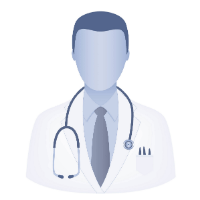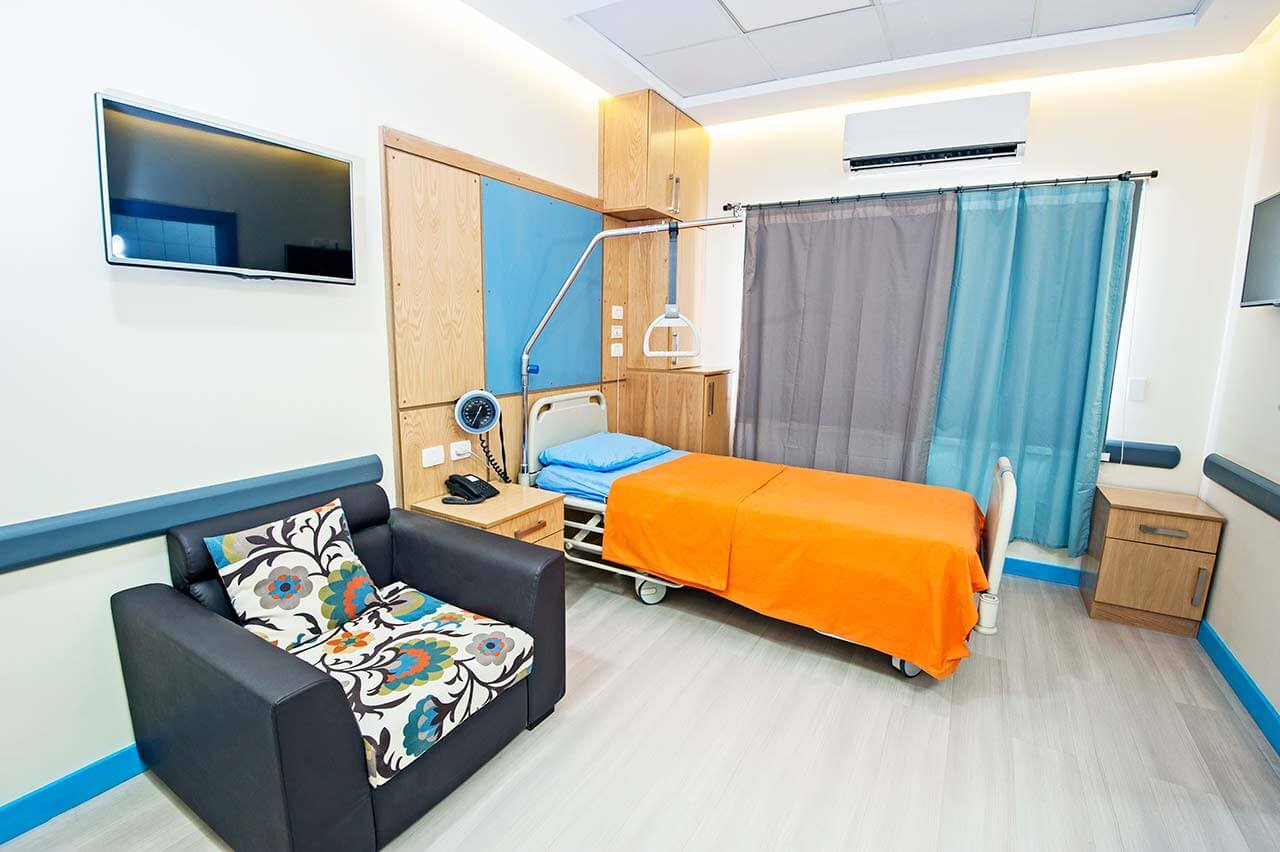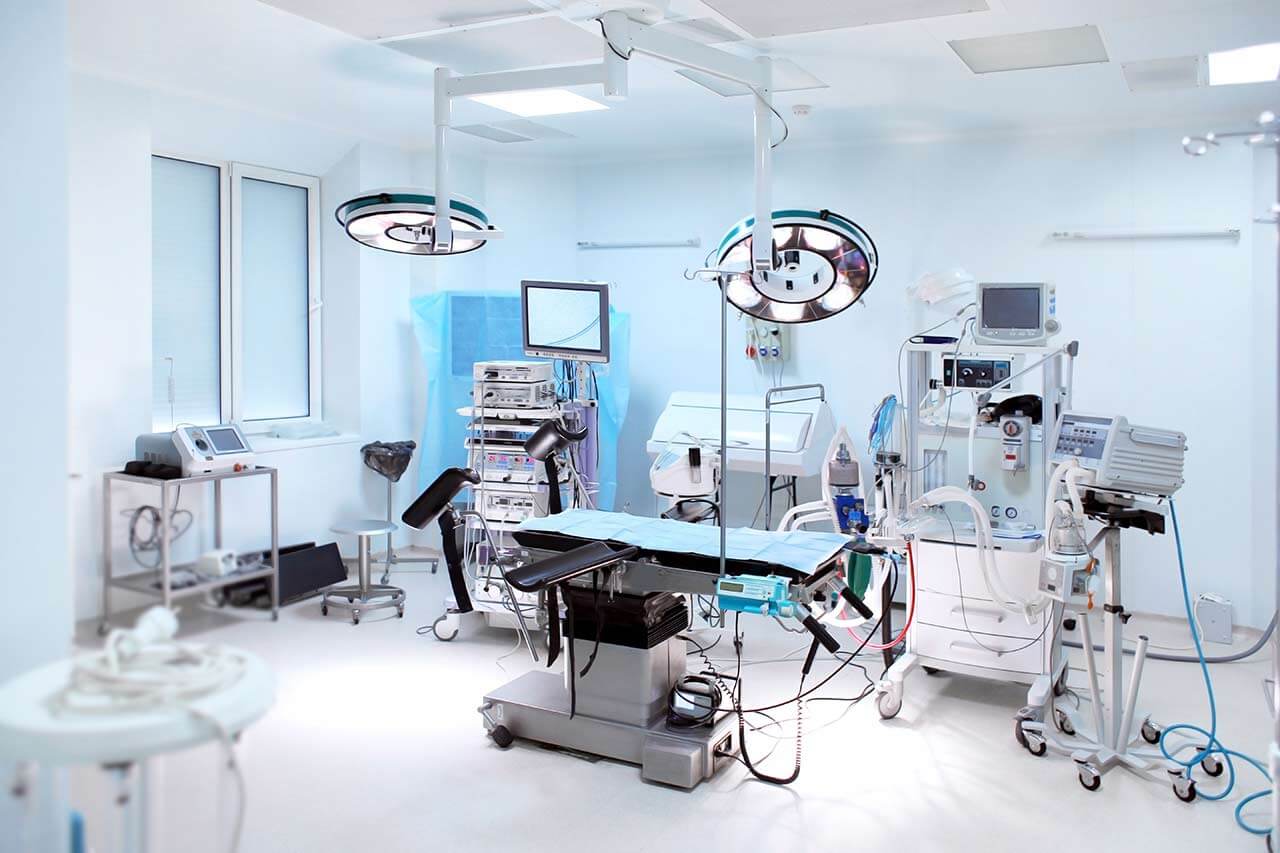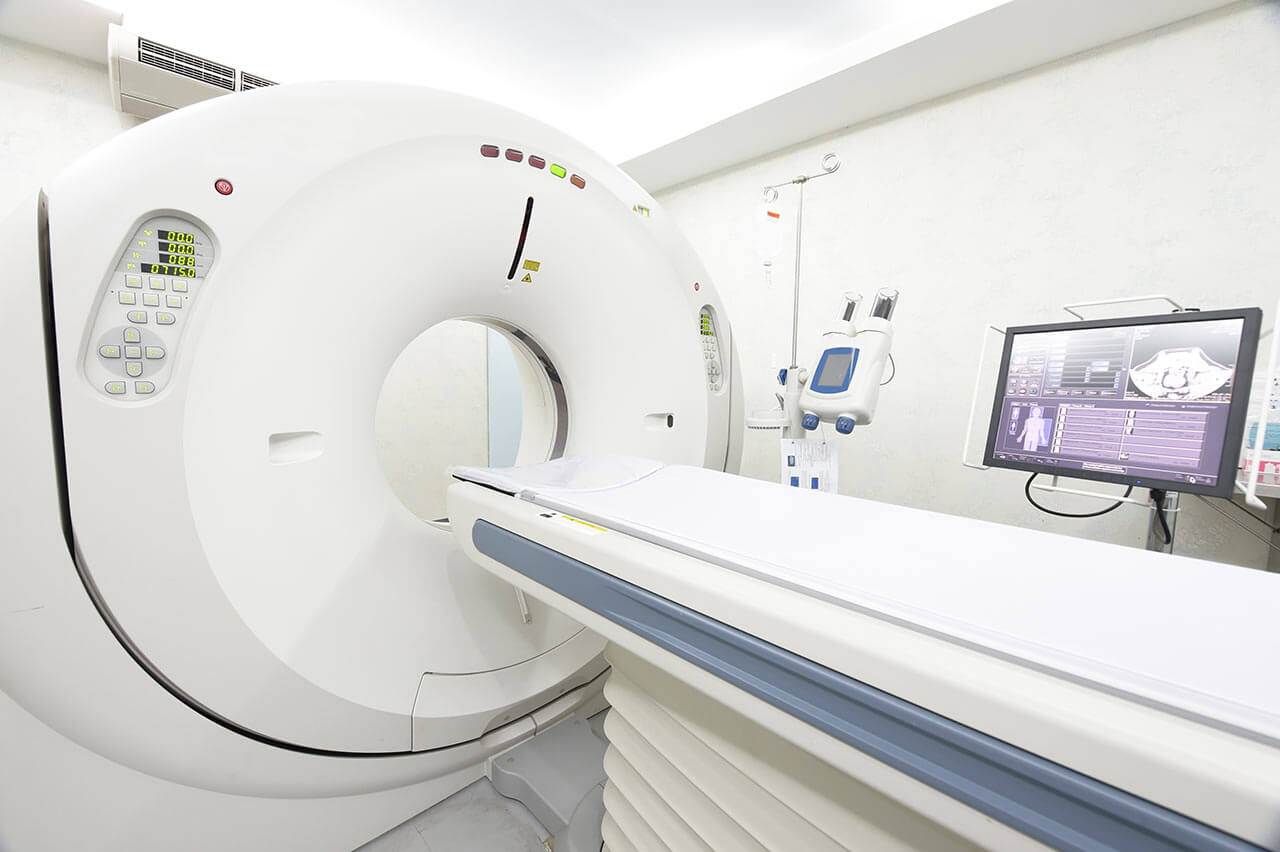
The program includes:
- Initial presentation in the clinic
- clinical history taking
- review of medical records
- physical examination
- laboratory tests:
- complete blood count
- general urine analysis
- biochemical analysis of blood
- inflammation indicators (CRP, ESR)
- indicators blood coagulation
- neurological examination
- functionality x-ray
- CT/MRI scan
- neuropsychological tests (on indications):
- ENMG (electroneuromyography)
- EEG (electroencephalography)
- SEPs (somatosensory evoked potentials)
- VEPs (visually evoked potentials)
- BAEP tests (brainstem auditory evoked potential)
- preoperative care
- partial resection of hemangioma with
subsequent coiling - histologically examination of the remote tissues
- blood transfusions (if needed)
- 1-day intensive care unit stay
- postoperative MRI control
- symptomatic treatment
- control examinations
- the cost of essential medicines and materials
- nursing services
- full hospital accommodation
- developing of further guidance
Required documents
- Medical records
- MRI/CT scan (if available)
- MR/CT-angiography (if available)
Service
You may also book:
 BookingHealth Price from:
BookingHealth Price from:
About the department
The Department of Interventional Radiology at the University Hospital Carl Gustav Carus Dresden provides the full range of modern imaging examinations and therapeutic image-guided interventional procedures. The department has state-of-the-art equipment: ultrasound systems, classical X-ray systems, devices for angiography, mammography, CT, MRI, PET-CT, PET-MRI, etc. The advanced equipment serves not only for diagnostics, but also for preoperative planning and other types of therapy. The department specializes in minimally invasive image-guided procedures for the targeted treatment of tumors and vascular diseases, as well as for pain management. The department received the prestigious certificate of the German Society for Interventional Radiology and Minimally Invasive Therapy (DeGIR) for the outstanding quality of interventional treatment. It is very important for the department's doctors to provide each patient with individual medical care with a focus on a humane attitude and understanding of his needs. The Head Physician of the department is Prof. Dr. med. Ralf-Thorsten Hoffmann.
The diagnostic options of the medical facility include computed tomography (used to diagnose tumors or their metastases, assess the progression of malignant diseases, search for foci of infectious diseases, study the severity of injuries in accidents, diagnose acute stroke or acute cerebral hemorrhage; CT-guided biopsy and interventional pain management are also carried out), magnetic resonance imaging (performed for imaging diagnostics of the internal organs, tissues and joints), conventional X-ray (used for imaging diagnostics of almost all areas of the human body), angiography and phlebography (these tests are an invasive method for examining blood vessels by introducing contrast medium through a catheter; CT angiography, MRI angiography and digital subtraction angiography are also available), as well as mammography for the diagnostics of breast diseases. It should be noted that the department has an advanced picture archiving and communication system, which provides doctors with instant access to all medical reports and images. External examinations, the results of which are recorded on CD or DVD discs, can be easily imported into the database. This makes it possible to further compare the current and previously performed images in dynamics.
The department's options in image-guided therapeutic interventional procedures are also quite extensive. The department's specialists successfully perform facet joint block and periradicular therapy to relieve back pain, radiofrequency ablation and thermal ablation to destroy tumors, vertebroplasty to treat vertebral compression fractures, uterine fibroid embolization, transarterial chemoembolization and selective internal radiation therapy for liver cancer and metastasis. A special place in the department's clinical practice is given to the interventional treatment of vascular pathologies: doctors specialize in balloon dilation, vascular stent implantation, thrombolysis, embolization and other procedures. All interventions are planned and performed in collaboration with experienced vascular surgeons. When performing any therapeutic manipulation, the specialists strictly adhere to clinical protocols and take care of the maximum safety of medical manipulations.
The department's range of medical services includes:
- Diagnostic options
- Computed tomography (CT)
- Magnetic resonance imaging (MRI)
- Conventional X-ray
- Angiography and phlebography
- Mammography
- Therapeutic options
- Facet joint block (treatment of pain due to degeneration of the small joints of the spine or iliac joints) and periradicular therapy (treatment method for back pain caused by nerve root lesion)
- Biopsy and drainage
- Radiofrequency ablation (for liver tumors and liver metastases, as well as for tumors of the lungs, kidneys, osteoid osteomas, benign bone tumors, etc.)
- Vertebroplasty (reconstruction of the vertebral bodies using special cement)
- Vascular interventions (interventional treatment of vascular diseases, vascular embolization in case of bleeding and tumors)
- Uterine fibroid embolization
- Transarterial chemoembolization for liver cancer
- Selective internal radiation therapy (used for the treatment of liver tumors, such as liver cancer and liver metastases, for which surgery or chemotherapy is contraindicated)
- EndoAVF treatment method for arteriovenous fistulas
- Other types of diagnostics and treatment
Curriculum vitae
University Education and Professional Career
- 11.1992 - 04.1999 Study of Human Medicine at the University of Erlangen-Nuremberg.
- 04.1999 Final examination (3rd part).
- 08.1999 - 01.2001 Residency, Department of Internal Medicine I, Landshut Hospital.
- 02.2001 - 09.2004 Residency, Institute of Clinical Radiology at the Ludwig Maximilian University of Munich, Grosshadern Hospital.
- 10.2004 - 11.2006 Acting Head of the Department and Head of the Section for Interventional Radiology and Angiography, Institute of Clinical Radiology at the Ludwig Maximilian University of Munich.
- 11.2006 Board certification in Radiology.
- 11.2006 - 12.2010 Senior Physician and Head of the Section for Interventional Radiology and Angiography, Institute for Clinical Radiology at the Ludwig Maximilian University of Munich.
- 01.2011 Leading Senior Physician in the Department of Diagnostic and Interventional Radiology at the University Hospital Carl Gustav Carus Dresden.
- 11.2011 Distance learning for Master of Business Administration, "Healthcare Management", Dresden International University.
- 11.2011 Certified Lecturer of all modules of interventional radiology (certification of the German Society for Interventional Radiology).
- 12.2011 Offer of the position of W2 Professor, Interventional Radiology, Dresden University of Technology.
- 05.2013 Auditor of the German Radiological Society (DRG) for the certification of Vascular Surgery Centers.
- 04.2014 Master of Business Administration in Healthcare.
- 09.2015 Certified by the European Board of Interventional Radiology (EBIR).
- 05.2016 Elected Member of the Steering Committee of the German Society for Interventional Radiology (DeGIR).
- Since 04.2018 Head Physician of the Department of Interventional Radiology at the University Hospital Carl Gustav Carus Dresden.
Academic Career
- 12.1996 - 02.1998 Thesis. Subject: "UV-induced skin inflammation and hyperalgesia", Institute of Physiology at the University of Erlangen.
- 01.2003 - 06.2010 Habilitation. Subject: "The clinical significance of radiofrequency ablation as a minimally invasive technique for the treatment of liver tumors, as well as its use in the treatment of extrahepatic tumors and in combination with other minimally invasive treatment methods", Institute of Clinical Radiology, Ludwig Maximilian University of Munich.
- 12.2011 Invitation to the position of W2 Professor, Interventional Radiology, Dresden University of Technology.
- 12.2016 Invitation to the position of W3 Professor, Interventional Radiology, Dresden University of Technology.
Publications
- More than 100 works in Medline journals.
- More than 65 original works in the field of peer review.
- More than 30 case reports and review articles.
Reports
- More than 150 English-language scientific reports at international congresses.
- More than 50 German-language reports at congresses in Germany.
- More than 150 reports at national and international congresses (by invitation).
Memberships in Professional Societies
- Cardiovascular and Interventional Radiological Society of Europe (CIRSE).
- Radiological Society of North America (RSNA).
- European Society of Radiology (ESR).
- European Society of Gastrointestinal and Abdominal Radiology (ESGAR).
- German Radiological Society (DRG).
- German Society for Interventional Radiology (DeGIR).
- Bavarian Radiological Society.
- Radiological Society of Saxony.
Review Activities in Medical Journals
- Gut.
- European Radiology.
- European Journal of Radiology.
- Cardiovascular and interventional Radiology.
- European Urology.
- Fortschritte auf dem Gebiet der Röntgenstrahlen (RöFo).
Editorial Boards
- PeerEmed (since 2010).
Additional Qualifications
- Participation in the consensus conference "Uterine fibroid embolization".
- Collaboration in the Project Group "Software" of the German Society for Interventional Radiology (DeGIR).
- Lecturer, Radiofrequency Ablation, European School of Interventional Radiology (ESIR).
- Collaboration in the development of S3 Guidelines for "Diagnostics and Treatment of Hepatocellular Carcinoma".
Awards
- 2004 ESGAR Member "Top 50 Speakers of the Year".
Photo: (с) depositphotos
About hospital
According to the reputable Focus magazine, the University Hospital Carl Gustav Carus Dresden ranks among the top five German hospitals!
The hospital is the benchmark for modern high-quality medicine. Positioning itself as a maximum care medical facility, the hospital represents all medical fields. There are 26 specialized departments, 6 institutes and 17 interdisciplinary centers, which cooperate closely with the clinical and scientific facilities of the Faculty of Medicine. The basis of successful practice is excellent equipment, which is regularly updated, as well as highly qualified, experienced medical personnel: world famous doctors and professors work here for the benefit of patients.
In addition to its main goal of caring for patients, the hospital is also active in training and professional development of medical personnel, as well as in the field of public health care. The priority focus of the work is research activity, which allows the doctors to introduce the innovative diagnostic and therapeutic techniques into clinical practice.
A special feature of the hospital is also the diagnostics and treatment of rare diseases. State-of-the-art equipment and well-coordinated work of doctors of various medical specialties make it possible to timely recognize pathologies rarely encountered in medical practice and select the most effective therapy. Specialization in rare diseases include neurology, endocrinology, hematology/oncology, and rare autoimmune diseases.
The hospital has 1,410 beds for patient hospitalization. About 55,900 inpatients and more than 233,975 outpatients undergo treatment here annually. A large medical team, consisting of about 1,000 highly qualified doctors, as well as over 2,000 nursing staff take care of the patients' health. Each patient is guaranteed an individual approach and the most effective treatment in accordance with current clinical protocols.
It should be noted that the university hospital enjoys an impeccable reputation not only in Germany, but also far beyond its borders, including Arab countries, post-Soviet states, Great Britain and the United States. Patients from different parts of the world come here for high-quality treatment for diseases of any severity. The highest credit of patient confidence is the main indicator of the fruitful work of doctors.
Photo: (с) depositphotos
Accommodation in hospital
Patients rooms
The patients of the University Hospital Carl Gustav Carus Dresden live in comfortable rooms made in bright colors and equipped with everything necessary. The standard patient room includes an automatically adjustable bed, a bedside table with a sliding table, a wardrobe, a telephone and a TV. There is also Wi-Fi (free) in the patient rooms.
If desired, patients may live in enhanced comfort patient rooms. These patient rooms have a more sophisticated design, upholstered furniture and a safe for storing valuables.
Meals and Menus
The patients of the hospital are offered a tasty, healthy and varied three meals a day. The menu is based on local cuisine and seasonal food. If you for some reason do not eat certain products, please inform the medical staff of the hospital in advance, and you will be offered an individual menu. The nutrition provided in the hospital is certified in accordance with the quality standards of the German Nutrition Society (DGE) for catering in German hospitals.
Further details
Standard rooms include:
Religion
The religious services are available upon request.
Accompanying person
Your accompanying person may stay with you in your patient room or at the hotel of your choice during the inpatient program.
Hotel
You may stay at the hotel of your choice during the outpatient program. Our managers will support you for selecting the best option.
The hospital offers a full range of laboratory diagnostic procedures (general, hormonal, tests for tumor markers, infections, antibodies, etc.), genetic tests, various modifications of ultrasound scans, CT scans, MRI and PET / CT, angiography, myelography, biopsy and other examinations. Treatment with medications, endoscopic and robotic operations, stereotaxic interventions is carried out here, modern types of radiation therapy are also used. The hospital offers patients all the necessary therapeutic techniques.
- Cochlear implantation
- Deep brain stimulation
- Treatment of benign prostatic hyperplasia with green laser
- Da Vinci prostatectomy
- Bone marrow transplantation
These are head and neck tumors, hearloss, amyotrophic lateral sclerosis, epilepsy, Parkinson disease, infertility, malignant tumors of the reproductive system, congenital anomalies of the genital organs and the urinary system, urinary incontinence, blood clotting disorders, leukemia and other pathologies.
- Otolaryngology (Center for Cochlear Implantation)
- Neurology and Epileptology
- Urology
- Oncology
- Gastroenterology and Hepatology
About 1,000 highly qualified doctors work at the hospital.





